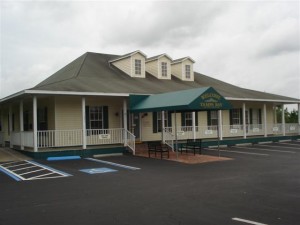 Now that budget season is approaching, many boards are considering what they should do for their reserve allocations in their budget. There are a couple of options. The first is to calculate reserves in-house by members of the board or the association. The second option is to get a professional reserve study for the association. The third option is to have a prior reserve study updated, assuming that the association had one to begin with.
Now that budget season is approaching, many boards are considering what they should do for their reserve allocations in their budget. There are a couple of options. The first is to calculate reserves in-house by members of the board or the association. The second option is to get a professional reserve study for the association. The third option is to have a prior reserve study updated, assuming that the association had one to begin with.
Limited Reserve Items
Doing reserves-in house certainly is possible, but it would only be recommended in certain scenarios. The most likely scenario is there are a limited amount of community capital assets in the association. For instance, an association that is composed of a few low-story buildings or less may have limited reserve items, like roofing and painting only. Another situation may be a single family home HOA with only a few community assets like a playground or tennis court. These are situations when it is the most reasonable to forego a professional reserve study.
Access to Reliable Cost Data
In order for an association to do their own reserves, they should have reliable known costs for most or all of the reserve items. You can get known costs by using a recent bid for work in your community, by using commercial cost data service like Marshall and Swift or RS Means, or by keeping a community capital expense history in the community and inflating the last time the work was performed into current dollars. The next step would then be to estimate the remaining life on each item when new an to estimate the life of the item when its new. Nevertheless, the association should only go at this by itself if it feels completely comfortable performing the task.
Not A Good Idea for Large Associations
Here is a scenario when an association should not try to calculate its own reserves: the association is very large and encompasses many different capital assets and many different types of capital assets. In this situation, there is the highest probability for error. And to compound the problem, since there are many assets, the errors will likely be larger in magnitude. As a general rule, the larger an association is, the more likely it should have a professional analyze its reserves and perform a reserve study.
However, in all of these situations, it is only recommended to do reserves in-house if you or the board feels completely comfortable calculating the sizes, quantities, economic lives, and cost numbers for the association. It would be foolish to forego a professional reserve study for a relatively small fee that may save the association several thousand dollars to the homeowners by eliminating, or at least minimizing special assessments for the community.